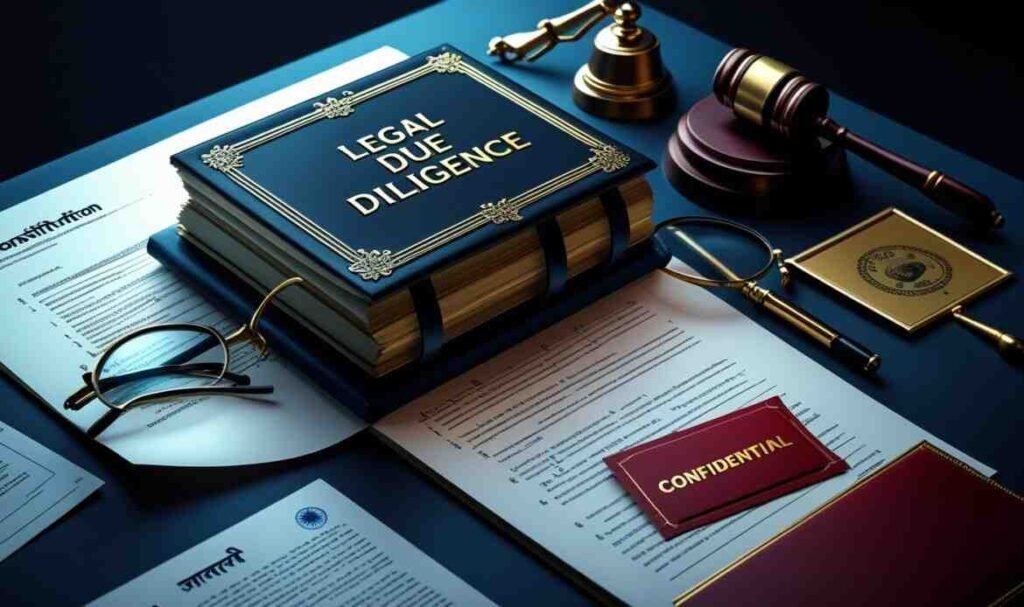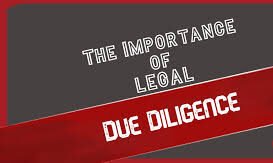
As litigation funding becomes an increasingly mainstream financial tool, the need for comprehensive legal due diligence has never been more critical. Funders are no longer passive investors, they are strategic partners who must carefully evaluate the legal, financial, and procedural risks associated with every case they support. In this high-stakes environment, legal due diligence serves as the foundation upon which sound funding decisions are made.
Whether a funder is considering a single commercial claim or a portfolio of complex disputes, legal due diligence ensures that investments are based on merit, enforceability, and strategic value. It goes far beyond reviewing documents, it involves a detailed assessment of case strength, jurisdictional issues, potential damages, enforceability of judgments, and compliance with ethical and regulatory frameworks.
Understanding Litigation Funding
Litigation funding, also known as third party litigation financing, is a financial arrangement where an outside party typically a specialized litigation funder provides monetary support to a claimant or law firm involved in legal proceedings. In return, the funder receives an agreed-upon share of any financial recovery if the case is successful. If the claim fails, the funder typically absorbs the loss, making litigation funding a non-recourse investment.
The model was developed as a tool of facilitating access to justice where the poor individuals or organizations that have meritorious claims but lack financial resources are able to seek the redress of the law. It has now become a highly advanced and generally accepted procedure, particularly in commercial litigation, international arbitration issues, insolvency proceedings and class actions.
Key Forms of Litigation Funding:
- Single-Case Funding: Financial support is provided for a specific legal case. This is common for high-value commercial disputes or arbitration claims.
- Portfolio Funding: A law firm or business receives capital based on a group of cases, spreading the funder’s risk across multiple claims.
- Law Firm Financing: Funders provide working capital to law firms, secured against future proceeds from pending or expected cases.
- Post-Settlement Funding: Used when a judgment or settlement has been reached, but payment is delayed, allowing the claimant early access to funds.
Benefits of Litigation Funding:
- Access to Justice: Plaintiffs can bring strong claims without the burden of legal costs.
- Risk Mitigation: Funders absorb financial risk, allowing claimants to proceed without jeopardizing their assets.
- Case Validation: Funders typically conduct rigorous due diligence, which provides a secondary validation of the claim’s merit.
- Non-Dilutive Capital: Especially for businesses, litigation funding offers a capital source that doesn’t affect ownership or control.
The legal funding industry is becoming more regulated and institutional investors are entering it as it matures. But the basic idea is the same, creating a system where meritorious claims will be litigated freely, with no financial constraints, and with high returns to those prepared to take the litigation risk.
Why Legal Due Diligence Matters
Legal due diligence is a critical pillar in the litigation funding process, serving as the foundation for sound investment decisions. Unlike conventional investments, litigation funding involves backing legal claims whose outcomes are inherently uncertain and influenced by complex legal, factual, and procedural factors. This uncertainty makes rigorous due diligence indispensable.
Risk Management and Assessment
In its simplest form, legal due diligence assists funders in determining and assessing risks that a claim carries. Through a close analysis of the arguments offered by the legal parties, their weaknesses and strengths, the procedural position, and the chances of success, funders can have an image of the possible results. This understanding is critical in controlling the financial risk and not making investments on weak or unproven claims.
Valuation and Return on Investment
Legal due diligence also educates proper valuation of claims. Damages, potential recoveries, and likelihood of enforcement are evaluated by funders and they all affect the expected payoff. In the absence of this analysis, the funders will overestimate the value of cases which results in ineffective capital allocation and losses.
Protecting Reputation and Compliance
Regulatory, ethical, and reputational considerations should also be made by the funders. Legal due diligence is used to make sure that regulations comply with anti-money laundering (AML), know your client (KYC) regulations and jurisdictions. It also hedges against funding hedonistic or unethical claims, which safeguard the reputation of the funder in an expanding and increasingly questioned market.
Facilitating Informed Decision-Making
By transforming legal complexities into quantifiable and analyzable information, legal due diligence empowers funders to make informed, strategic funding decisions. It supports transparent communication with stakeholders and helps structure funding agreements that align risk with reward.
Legal Due Diligence: Definition and Importance
Legal due diligence is a comprehensive, systematic investigation and analysis of the legal aspects of a case or claim, carried out to assess its strengths, weaknesses, risks, and potential outcomes. In the context of litigation funding, it involves a thorough examination of all legal documentation, procedural status, evidence, jurisdictional issues, and regulatory factors that affect the viability and enforceability of a legal dispute.
Legal due diligence is mainly aimed at offering litigation funders with a better ground to determine whether to invest in funding a specific claim. It is an important measure that transcends a cursory investigations of the case and explores the nitty-gritty of the case that may make or break the litigation.
Importance of Legal Due Diligence

- Risk Identification and Management:
Litigation inherently involves uncertainty and risk. Legal due diligence helps identify potential legal challenges, defenses, procedural hurdles, and enforcement issues early. By uncovering these risks, funders can make more calculated decisions and avoid investing in cases with low chances of success. - Valuation and Financial Assessment:
A funder’s return depends on the recoverable amount from a successful claim. Legal due diligence aids in evaluating damages claims, the likelihood of enforcement, and potential counterclaims or adverse costs. This process is essential for accurate financial modeling and ensuring the investment aligns with the funder’s risk appetite. - Regulatory and Ethical Compliance:
Due diligence ensures that funding complies with relevant laws, including anti-money laundering (AML) regulations, sanctions, and jurisdictional disclosure requirements. It also helps maintain ethical standards by avoiding support for frivolous or unethical litigation. - Informed Decision-Making:
By providing a clear, evidence-based picture of the case, legal due diligence empowers funders to negotiate fair funding agreements, allocate resources efficiently, and maintain transparency with stakeholders.
In sum, legal due diligence is indispensable in litigation funding, it transforms complex legal disputes into manageable investment opportunities while safeguarding financial, reputational, and regulatory interests.
Key Components of Legal Due Diligence
Legal due diligence is a multi-faceted, detailed process designed to thoroughly evaluate the merits and risks of a legal claim before a litigation funder commits capital. The core components encompass a range of legal, procedural, financial, and regulatory considerations, each critical to forming a complete picture of the case’s viability and potential for success.

1. Merits Analysis
The first and most fundamental component is an in-depth evaluation of the legal merits of the claim. This involves scrutinizing the facts, contracts, communications, and applicable laws to identify the cause(s) of action. Legal experts assess the strength of the claim, including the evidence supporting it, the likelihood of prevailing on the key legal issues, and potential defenses the opposing party might raise. This analysis sets the foundation for all subsequent assessments.
2. Jurisdiction and Procedural Assessment
Next, due diligence examines the jurisdiction in which the case is filed or arbitrated. Understanding jurisdictional rules is vital, as it influences procedural aspects such as case timelines, admissibility of evidence, and the availability of interim relief. Procedural posture, whether the case is at the pleading, discovery, or trial stage also affects risk and valuation. Cross-border disputes require special attention to conflict of laws and enforceability across multiple jurisdictions.
3. Damages and Valuation Analysis
A thorough assessment of potential damages is essential. This component reviews the legal basis for claimed damages and the methodology used to calculate them, often involving financial experts. Funders evaluate the quantum of damages realistically recoverable, considering evidentiary support, causation, and any contractual or statutory caps. This valuation helps estimate the return on investment and guides funding amounts.
4. Enforceability and Recovery Prospects
Winning a case is only part of the equation; recovering the judgment is equally important. Due diligence evaluates the respondent’s financial position, asset availability, and jurisdictional challenges to enforcement. This includes examining insolvency risks, potential for asset tracing, and cross-border enforcement complexities.
5. Counterparty and Adverse Cost Risks
Assessing the opponent’s ability to pay adverse costs, the likelihood of counterclaims, or strategic defenses is crucial. Funders need to anticipate possible cost orders and potential financial exposure beyond legal fees.
6. Regulatory and Ethical Compliance
Compliance with regulatory frameworks, including anti-money laundering (AML) checks, sanctions, and confidentiality requirements, forms a key part of due diligence. Ethical considerations such as ensuring the litigation is not frivolous or vexatious also guide funding decisions.
Due Diligence Process: Step-by-Step
Legal due diligence in litigation funding is a structured and systematic process aimed at thoroughly assessing the viability, risks, and potential returns of a claim before committing capital. Funders follow a well-defined sequence of steps to gather, analyze, and verify critical information to make informed funding decisions. Below is a typical step-by-step due diligence process:
Initial Case Screening
The process begins with a preliminary review of the claim to determine if it meets the funder’s basic criteria. This involves an initial assessment of the case facts, legal issues, estimated damages, and the parties involved. The goal is to quickly filter out claims that are clearly weak or unsuitable for funding.
Execution of Non-Disclosure Agreement (NDA)
Once the case passes the initial screening, the funder and claimant enter into a Non-Disclosure Agreement to ensure confidentiality. This step protects sensitive information exchanged during the due diligence process.
Information Gathering
The funder requests comprehensive documentation related to the claim. This includes pleadings, contracts, witness statements, expert reports, and any prior rulings or arbitration awards. The funder may also seek financial information about the parties and background on related entities.
Legal Analysis
Experienced legal counsel conducts an in-depth review of the claim’s merits, applicable law, procedural posture, and potential defenses. This phase identifies key legal strengths and weaknesses, assesses jurisdictional issues, and evaluates the likelihood of success.
Financial and Damages Assessment
Specialists, including forensic accountants and damages experts, analyze the claimed losses or damages, verifying their calculation and reasonableness. The funder evaluates the estimated value of the claim and possible recovery amounts.
Risk Evaluation
Risks such as enforceability of a future judgment, the financial strength of the defendant, potential counterclaims, adverse costs exposure, and regulatory or ethical concerns are carefully assessed. Funders consider both legal and commercial risks.
Investment Committee Review
Findings from the legal and financial analysis are presented to an investment or risk committee. This body reviews the due diligence report and decides whether to approve, decline, or request further investigation.
Negotiation and Funding Agreement
If approved, the funder negotiates the terms of the litigation funding agreement (LFA) with the claimant or law firm. This contract sets out the funding terms, fees, governance, and dispute resolution mechanisms.
Ongoing Monitoring
Post-funding, the funder continuously monitors case developments, financial performance, and risk factors through periodic updates and reporting requirements.
Stakeholder Roles in the Due Diligence Process
The due diligence process in litigation funding involves collaboration among multiple stakeholders, each playing a crucial role in assessing the viability, risks, and potential returns of a legal claim. Understanding these roles is essential for smooth coordination and effective decision making.
1. Litigation Funders
Litigation funders lead the due diligence process. They initiate the evaluation, coordinate the collection and analysis of information, and make final investment decisions. Funders allocate resources for legal and financial experts and ensure that due diligence aligns with their risk appetite and strategic objectives. Their role also includes negotiating the funding agreement and ongoing portfolio management.
2. Claimants
Claimants are the parties seeking funding to pursue their legal claims. They provide the funder with all necessary documentation, case facts, and strategic insights. Claimants are responsible for transparency and cooperation throughout the process, helping funders understand the nuances of the dispute. Their credibility and openness can significantly influence the funder’s confidence in the case.
3. Law Firms
Law firms representing the claimants are critical participants in due diligence. They supply detailed legal documentation, explain the merits and strategy of the case, and may assist in identifying risks or procedural issues. Law firms also help ensure that funders have access to privileged information while maintaining confidentiality and ethical standards.
4. External Legal Experts
Funders often engage external counsel or specialist lawyers to conduct an independent assessment of the claim’s legal merits and procedural aspects. These experts provide objective, jurisdiction-specific advice and help identify potential pitfalls or defenses that might affect case valuation.
5. Financial and Forensic Experts
Financial experts, damage specialists, and forensic accountants examine the claimed damages and check the calculations of the damages and determine the financial welfare of the defendant. Their level of contribution remains essential in the value of the potential recovery and the level of risk of enforcement.
6. Risk and Compliance Teams
Risk and compliance officers (internal or external) make sure that all the regulatory mandatory issues are complied with, including anti-money laundering (AML), know your client (KYC), and ethics. They even consider possible reputational risks and conflicts of interest..
Technological Enhancements in Due Diligence
Technology is rapidly transforming the legal due diligence process in litigation funding, making it faster, more accurate, and cost-effective. Advanced tools and software solutions help funders and their legal teams analyze vast amounts of data, streamline workflows, and uncover insights that might otherwise go unnoticed.
Artificial Intelligence and Machine Learning
Artificial intelligence can quickly (and accurately) scan and analyze legal documents, contracts, and case files. Machine learning algorithms find the clauses that are relevant, indicate the possible risks, and forecast the litigation results using the historical data. This saves time and human error involved in manual review enabling funders to evaluate claims more effectively.
Data Analytics
Big data analytics enables funders to evaluate trends and patterns across similar cases, jurisdictions, or industries. By leveraging data on past rulings, damages awarded, and enforcement rates, funders gain a more informed perspective on a claim’s potential success and value. Predictive analytics further enhance risk assessment by forecasting possible outcomes based on multiple variables.
Document Management Systems
Document management systems are cloud based allowing the secure storage, sharing and collaboration of case materials. These systems facilitate version control and audit trails, which not only makes it transparent but also adheres to the regulatory laws during the due diligence process.
Blockchain and Smart Contracts
New blockchain technologies provide better security and transparency on funding deals. With smart contracts payments could be automated and terms could be enforced automatically once the conditions predefined were met, and the administrative overhead could be reduced as well as the number of disputes.
Virtual Due Diligence Rooms
Virtual data room (VDRs) is a centralized and secure space where stakeholders can access any sensitive documentation remotely. VDRs enhance the communication between funders, law firms and professionals, reducing the timeline of due diligence without losing confidentiality.
Risks of Inadequate Due Diligence
Legal due diligence in litigation funding may lead to a high level of financial, legal and reputational damages on funders, claimants and other interested parties. Due to the inherent uncertainty associated with litigation, conducting a comprehensive and intensive due diligence exercise is essential in determining the possible pitfalls and in properly determining the viability of a particular case. Lack of thorough due diligence may lead to a number of severe outcomes.
Financial Losses
Financial loss is one of the most immediate dangers of the lack of due diligence. Funders can put money into claims that have poor legal merit, or overstated values of damages and achieve poor results or less recoveries. Moreover, inability to evaluate the risks of enforcement adequately may lead to the cases of the favorable decision that may not be gathered, and the investment is wasted.
Unexpected Legal and Procedural Challenges
Funders might not be able to identify procedural challenges like jurisdictional, statute of limitations, or unfavorable evidentiary decisions without analysis. Such complications may slow down litigation, raise expenses or even dismiss the case and threaten the investment.
Exposure to Adverse Costs
The loser in most of the jurisdictions will have the legal expenses of the other party. Poor due diligence could be a situation whereby the risk or quantum of adverse orders of cost is underestimated, which may severely wipe out or surpass potential recoveries, leaving funders and claimants cash strapped.
Reputational Damage
Assisting case-thrown-away, annoying or ethically dubious claims can hurt the reputation and credibility of a funder. This can have an impact on future flow of deals, investor confidence and regulatory compliance. The reputational damage can be hard to correct and this may have long term effects in the business of the funder.
Regulatory and Compliance Risks
Lack of proper due diligence could result in penalties, fines, and operation limits as a result of not meeting the anti-money laundering (AML), sanctions, or jurisdictional regulations. It may also attract regulatory inquiries, which can put more operational risks.
Conclusion
Legal due diligence is not a formality, it is the bedrock of effective litigation funding. As funders navigate a landscape marked by legal complexity, regulatory scrutiny, and financial risk, due diligence provides clarity and confidence.
The evaluations of the legal, procedural, financial, and ethical facets of individual cases by funders guarantee that capital is utilized accountably and that claimants get access to justice and legal markets are of integrity.
As the litigation funding industry becomes an asset class on its own, the need to have the accurate, technology advanced, and jurisdiction-based due diligence will increase only. Investors with a focus on legal prudence will not only secure their investments, they will also be creating the future of legal finance in general.
